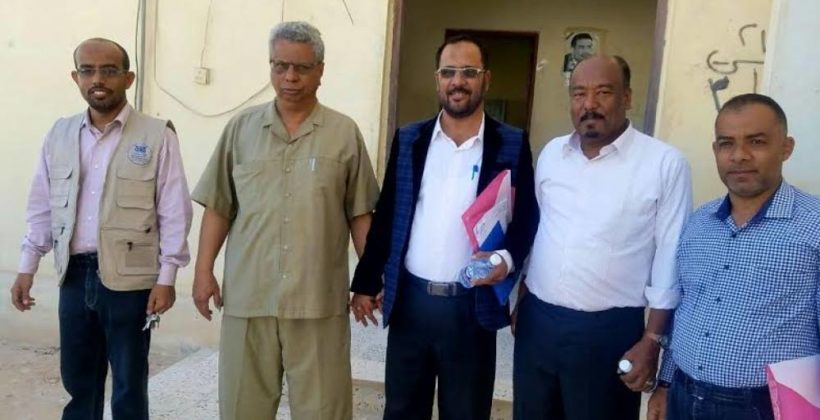
Dar Al Maarif Research and Statistics in Mukalla, announced The results of the visit of its scientific team in coordination with the Faculty of Medicine at Hadramout University to investigate the facts of the spread of malaria epidemic in Al-Ghaydah city, the capital of Al-Mahrah province, headed by Dr. Abdullah Salem bin Ghauth, director of Research and Statistics Department at Dar Al-Ma’arif with a scientific team specialists in insect investigation and laboratory technicians, and in coordination with the Ministry of Health and Population in the province of Al-Mahrah, which was carried out during the period from (11 – 14)of the past January, and during the team informing of the health and epidemiological status of malaria and the visit of a number of hospitals, medical and health centers and infected places and accessing the statistics and data and sitting with specialists and the local authority and Al-Mahrah foundation for humanitarian work, as well as examining a number of cases and insect investigations, all come up with the conclusion that the situation is very serious and warns of a major disaster if it is not quickly remedied, calling on the international and regional organizations and health authorities in the province and the legitimate government to quickly intervene to control and eliminate this serious epidemic that threatens not only Al-Mahrah, but also the Gulf countries, including Oman and the United Arab Emirates. According to reports of the National Program to control Malaria in the province of Al-Mahrah, 1076 cases of malaria were recorded in 2016 in the city of Al-Ghaydah, the capital of the province, some of the cases reached the hospitals of Hadramout, an increase of 900% than the year of 2015 with 155 cases, where the disease has become a social and official concern. This considered a threat to the Gulf states that are close to the borders and are free from Malaria (Oman and the United Arab Emirates) with certificate of the World Health Organization (WHO) in 2010 with. This matter requires the responsible authorities to take into consideration the epidemiological status of malaria in Al-Mahrah and the emerging epidemics, also makeing scientific and practical treatment to contain it, as well as providing radical solutions to eliminate because of its local, regional and international benefits, especially with the emergence of malaria falciparum, the most serious type of malaria. Al-Ghaydah consists of 31% of Al-Mahrah population, which reached 27,404 in 2004, this number is expected to reach 45000 in 2016, Only 23.7 cases of new malaria per 1,000 inhabitants of the city are in Al-Ghaydah . Reports indicate that the increase in the number of infections was noticeable in the months of October and December of 2016 (428-246-258) in row, which warns of the continuation of epidemiological spread. The Joint Scientific Committee of Dar Al-Ma’arif for Research and Statistics and the Faculty of Medicine and Health Sciences at Hadramout University recorded through the epidemiological investigation of malaria carried out from 11-14 January including the scientific report issued by the Committee with the results of its conclusions recommending, a plan to get rid of the disease in the short and long term by spraying foggy for 12 days a month in three months and focusing on the city of Al-Ghaydah only, and planning for a spray campaign in April 2017, and providing a malaria control infrastructure and plan and implement an effective health education campaign for at least two months.
The plan aims to contain the malaria epidemic in Al-Ghaydah city to the levels in the other districts of Al-Mahrah within six months, also strengthen the institutional capacity to control malaria in the governorate and reduce annual incidence of malaria in Al-Ghaydah governorate from 23.6 per 1,000 year in 2016 to less than 5 per 1,000 year in 2020, and improve citizens’ awareness and prevention. A number of factors have contributed to the emergence of epidemics and diseases such as malaria in Al-Mahrah governorate, including the political and natural conditions that have occurred since 2015 and directly affected the inability of the health system and the program to maintain low rates to totally get rid of the disease through stopping the activities that control the carrier and the weak epidemiological surveillance and the lack of full preparation for the eradication phase of malaria as well as the increasing of displacement and refugees to Al-Mahrah from the other infected governorates, and the increased passenger through land and sea ports.
The Ministry of Health and the local authority in the province of AL-Mahrah may intervene in October 2010 by a limited intervention through fog spray and health education, but the situation is still worrying and needs serious solutions.